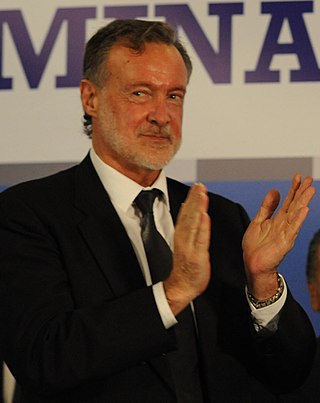
Rafael Antonio Bielsa Caldera is an Argentine Justicialist Party politician from Rosario,province of Santa Fe. Since 2020 he has been Argentina's ambassador to Chile.

Felipe Solá is an Argentine agricultural engineer and politician. He previously served as Governor of Buenos Aires Province,from 2002 to 2007,and as Minister of Foreign Affairs and Worship under President Alberto Fernández,from 2019 to 2021.

Daniel Osvaldo Scioli is an Argentine politician,sportsman,and businessman. He currently serves as the Secretary of Tourism,Environment and Sports since January 2024. He was Vice President of Argentina from 2003 to 2007 and Governor of Buenos Aires Province from 2007 to 2015. From September 2022 to January 2024 he was Argentina's ambassador to Brazil.
César Fernando Mayoral is an Argentinian diplomat. He served as the Permanent Representative of Argentina to the United Nations from January 2004 to June 2007.
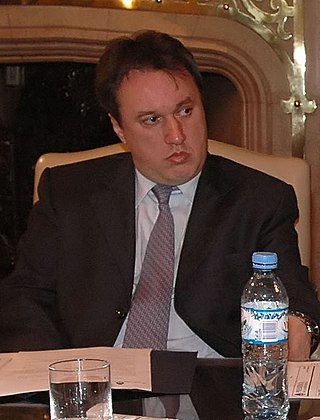
Miguel Gustavo Peirano is an Argentine economist and former Minister of Economy and Production of Argentina. He was appointed by President Néstor Kirchner on July 17,2007,in place of Felisa Miceli.

Martín Lousteau is an Argentine economist and politician of the Radical Civic Union (UCR). He is a National Senator for the City of Buenos Aires. Since 2023,he has been President of the UCR National Committee until his death in the Senate for the approval of the Law of Foundations and Starting Points for the Freedom of Argentinians.
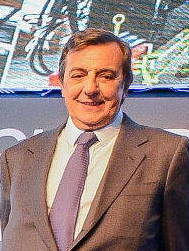
Luis María Ureta Sáenz Peña is an Argentine businessman and diplomat. He was the Argentine Ambassador to France since 2007,and formerly headed the operations of Peugeot-Citroën in Argentina.
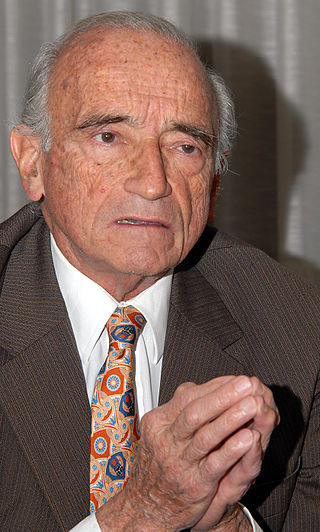
Aldo Ferrer was an Argentine economist. He was one of the leading proponents of economic nationalism in Argentina.

Foreign relations between Argentina and the Holy See,have existed for over a century. The current pope,Pope Francis,was the former Archbishop of Buenos Aires.
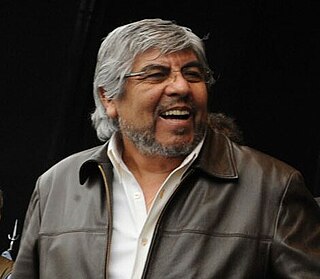
Hugo Moyano is an Argentine labour leader who was secretary general of the CGT,the country's largest trade union,from 2004 to 2012. A schism developed within the CGT during 2012,and Moyano was elected to head the CGT's dissident faction. He was also the president of Club Atlético Independiente,one of the biggest football clubs in the country,and treasurer of the Argentine Football Association. He is the founder and leader of the Party of Culture,Education and Labour (CET).

The Argentina Bicentennial was a series of ceremonies,festivals,and observances celebrated on May 25,2010,and throughout the year. They commemorated the 200th anniversary of the May Revolution,a sequence of historical events that led to the Viceroy Baltasar Hidalgo de Cisneros being ousted from office and replaced with the Primera Junta,the first national government.

Néstor Kirchner,former President of Argentina,died of heart failure on the morning of 27 October 2010 at the Jose Formenti hospital in El Calafate,Santa Cruz Province at the age of 60. Efforts to revive him were unsuccessful. His wife,President Cristina Fernández de Kirchner,was present with him when he died. He was expected to run for president in 2011.

Juan Manuel Abal Medina is an Argentine academic,political scientist,and author. He was appointed Communications Secretary by President Cristina Fernández de Kirchner in 2011,and served as Chief of the Cabinet of Ministers of Argentina from December 2011 to November 2013. He was a national senator for Buenos Aires Province from 2014 to 2017.

Ricardo Forster is an Argentine philosopher,historian of ideas and political critic.

Axel Kicillof is an Argentine economist and politician who has been Governor of Buenos Aires Province since 2019.
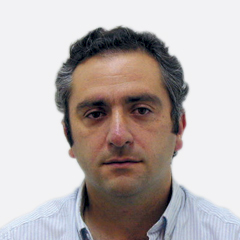
Andrés "Cuervo" Larroque is an Argentine activist and political leader. He was a national deputy for the Autonomous City of Buenos Aires and the Buenos Aires Province for the Front for Victory,Unidad Ciudadana and the Frente de Todos He currently holds the position of Secretary General of La Campora and is Minister of Community Development of Buenos Aires Province.

Máximo Carlos Kirchner is an Argentine politician who has served as a National Deputy since 2015. He is the son of two former presidents of Argentina,Néstor Kirchner and Cristina Fernández de Kirchner. A member of the Justicialist Party,he is the co-founder of La Cámpora,a political youth organisation which supported the presidencies of his parents.
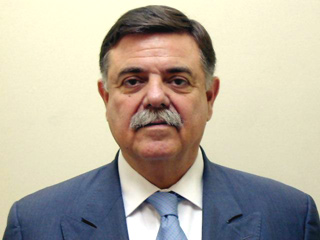
Alfredo Néstor Atanasof is an Argentine politician,who was National Deputy for Buenos Aires district during three terms 2009–2013,2003-2007 and 1995–2002. He also served as Chief of the Cabinet of Ministers of Argentina and Minister of Labour during the presidency of Eduardo Duhalde in 2002.

Avanza Libertad,originally founded in 2019 as Frente Despertar,was an Argentine right-wing political coalition. Renamed in 2020,Avanza Libertad had legal status in the Buenos Aires Province. Ideologically,it is libertarian conservative,supportive of economic liberalism,ultraconservatism,and critical of both Kirchnerism and Juntos por el Cambio. Led by JoséLuis Espert,is a far-right coalition,with its being compared to Spain's Vox.


















